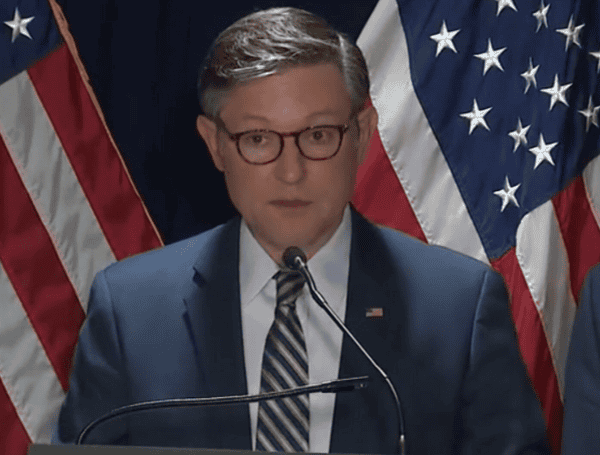In a razor-thin vote on Thursday, the House of Representatives moved to slash approximately $9.4 billion in spending already approved by Congress, a move championed by President Donald Trump’s administration and rooted in the previous work of the Department of Government Efficiency under Elon Musk.
The 214-212 vote sets the stage for a contentious battle with Democrats and highlights the administration’s aggressive push to rein in federal expenditures.
READ: Florida Rep. Donalds Blasts Minnesota Gov. Walz For Comparing ICE Agents To “Gestapo”
The targeted cuts aim at a range of programs, including foreign aid and, notably, the Corporation for Public Broadcasting (CPB), which funnels money to National Public Radio (NPR) and the Public Broadcasting Service (PBS), along with thousands of local public radio and television stations nationwide.
Republicans have characterized the spending as “wasteful and unnecessary,” arguing for fiscal responsibility. House Republican Conference Chair Rep. Lisa McClain stated, “This rescissions package sends $9.4 billion back to the U.S. Treasury. That’s $9.4 billion of savings that taxpayers won’t see wasted. It’s their money.”
Democrats, however, vehemently oppose the cuts, asserting they will cripple the United States’ international standing and lead to dire consequences. Democratic leader Hakeem Jeffries of New York sharply criticized the move, stating, “Cruelty is the point.” Concerns have been raised previously by public broadcasting organizations, with NPR even suing the Trump administration over a prior executive order to cut funding.
READ: Gov. DeSantis: Florida Drivers Have Right To Hit Protesters If Threatened
The Trump administration is utilizing a rarely employed mechanism that allows the president to formally request Congress to cancel previously appropriated funds. This request triggers a 45-day period during which the funds are frozen pending congressional action. If Congress fails to act within this timeframe, the original spending stands.
A significant advantage of this rescissions request for the administration is that its passage requires only a simple majority in the 100-member Senate, bypassing the typical 60-vote threshold for spending bills. This means a united Republican front in the Senate could pass the measure without any Democratic support.
However, the bill’s journey through the Senate may not be swift. Senate Majority Leader John Thune (R-S.D.) indicated that the Senate would likely not take up the bill until July, prioritizing Trump’s major tax and immigration legislation. Thune also left open the possibility that the Senate could amend the bill.
Please make a small donation to the Tampa Free Press to help sustain independent journalism. Your contribution enables us to continue delivering high-quality, local, and national news coverage.
Connect with us: Follow the Tampa Free Press on Facebook and Twitter for breaking news and updates.
Sign up: Subscribe to our free newsletter for a curated selection of top stories delivered straight to your inbox.
